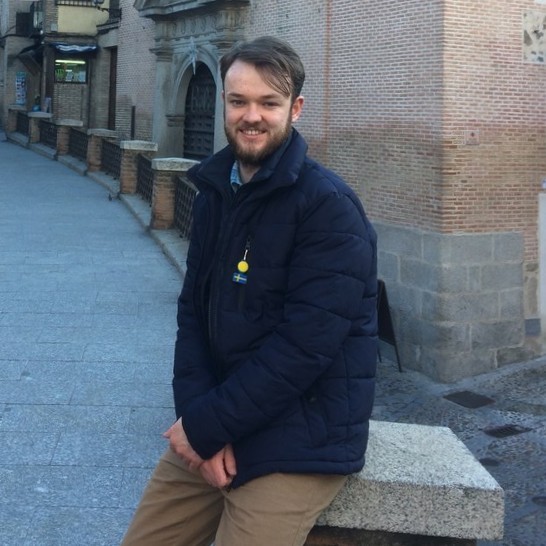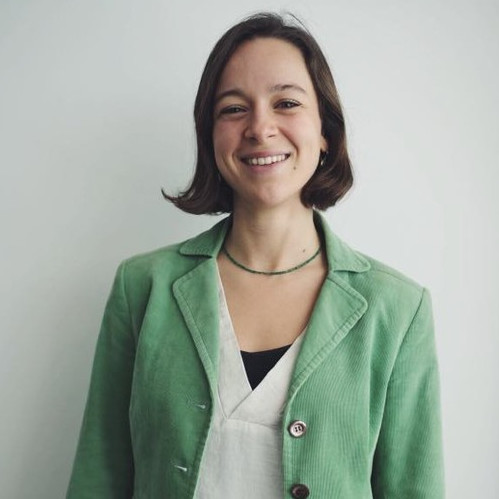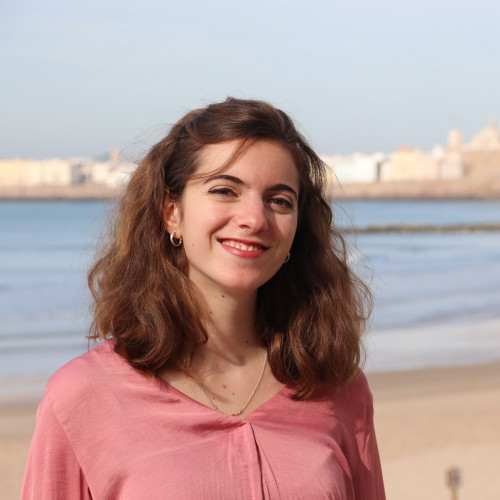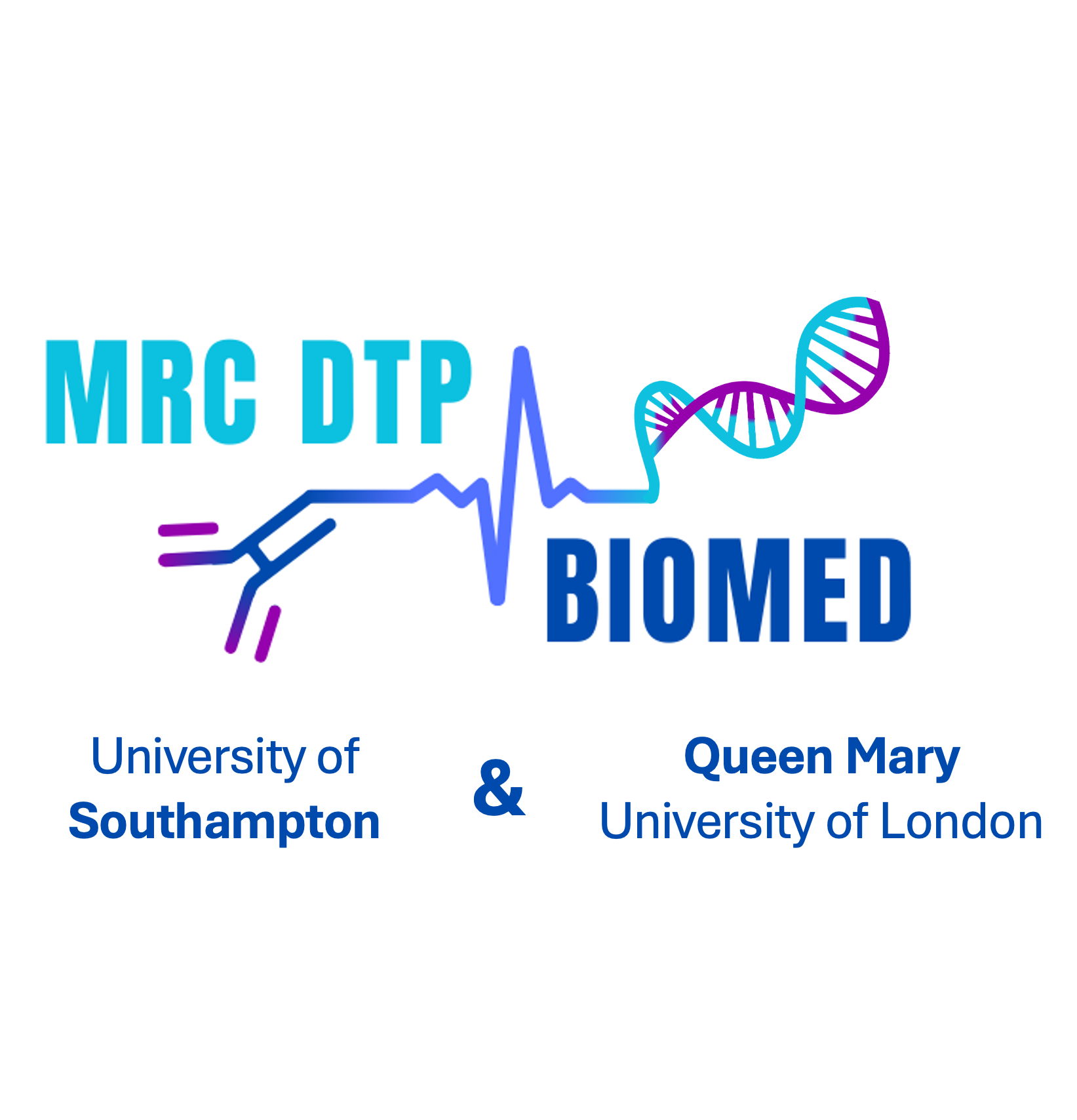
Immunity and Infection
What is your current project? I am investigating how a targeted cancer therapy used to treat B cell malignancies affects NK cell mediated immunity. As with many treatments, certain patients do not respond to this therapy, hence combination therapies are warranted. Targeted cancer therapies have been shown to modulate the NK cell immune response and given the promise of harnessing NK cells in immunotherapies, understanding how targeted cancer therapies modulate NK cell activity is key to optimising NK cell combination therapy approaches.
What skills have you developed so far, and what skills do you hope to develop? After one year I’ve learnt how to conduct complex flow cytometry experiments including NK cell activation and NK cell killing assays, perform western blots and tissue culture. In the future I am hoping to gain in vivo skills to study NK cell function in the tumour microenvironment and learn immunohistochemistry techniques to visualise NK cells in tissue. Alongside lab-specific skills, the programme has provided me with fundamental skills in scientific writing, enhanced my presentational capacity and improved my data handling in terms of storage, analysis and visualisation.
How have you found the mathematic/computational component of the DTP? It was a great opportunity to build upon the basic knowledge I obtained during my undergraduate studies. It was daunting at first, but after asking the incredibly helpful lecturers and student demonstrators (too) many questions it all clicked into place. I’ve not used what I learnt in my project yet, but so far it has been incredibly useful for understanding bioinformatic papers and when I do come round to performing bioinformatics I will certainly look back to this experience for guidance.
What have you enjoyed most about your experience so far? What has been challenging? I really enjoyed being able to rotate labs, one of the main reasons for choosing the programme. It enabled me to meet people from across the department to which I am new, but more importantly it allowed me to understand the speciality of each lab, therefore any scientific or technical problem I may encounter I have an array of people I can approach to help. I have enjoyed every experience so far, but the most challenging aspect of the course was juggling the 10-week lab rotation, writing the lab report and submitting assignments. These certainly kept me busy, but I wouldn’t change the experience one bit and the summer holiday definitely made up for those really busy periods of the year.

Cancer, Inflammation and Immunology
What is your current project? I decided to pursue my first project with Dr Prabhakar Rajan and Professor Conrad Bessant as my PhD project. I will be using proteomics informed by transcriptomics (PIT) pipelines to identify putative neoantigens generated by alternative pre-mRNA splicing (AS). During AS, genes are shuffled to produce a number of protein isoforms from a single gene, which increases proteomic diversity. AS is disrupted in cancer, which may lead to new proteins that are processed as neoantigens for the cell. Tumours with a high neoantigen burden, typically arising from mutations, are effectively targeted by immune checkpoint-based anti-cancer immunotherapy. Hence, a greater understanding of the role of AS in neoantigen generation may reveal novel anti-cancer therapies.
I chose this project as it applies computation pipelines and artificial intelligence algorithms, which will equip me with the important skills necessary to advance in cancer research. Finally, having both a clinician scientist and computational biologist as my supervisors has ensured I get the best well-rounded support during my PhD.
What skills have you developed so far, and what skills do you hope to develop? I have developed important independence and organisational skills when planning my PhD research. The rotations also gave me a chance to gain wet-lab experience which I had not previously undertaken. I am also hoping to continue building on my coding skills in different languages to advance in my research.
How have you found the mathematic/computational component of the DTP? I had previously completed an MRes in Cancer Informatics at Imperial College London, which equipped me with the necessary R skills needed for biological research. Therefore, the bioinformatics/computational component of the programme was not as demanding for me.
What have you enjoyed most about your experience so far? What have you found challenging? I enjoyed the chance to undertake three different projects before choosing my final PhD project. I got the chance to try out new experiences for example in wet-lab which I may not have had I gone directly into a PhD. I think this opportunity to try out a lab before committing to the full PhD is indispensable and I am extremely grateful for this opportunity. I also really enjoyed my optional module “Infection and Immunity” which was taught at Southampton (due to Covid it was online) alongside my second module.
I least enjoyed the two taught modules during the first semester as I was unable to focus enough time on my rotation project in comparison to the other two projects.

Cancer, Inflammation and Immunology
What is your current project? I am currently undertaking my PhD in Dr. Inês Sequeira’s lab. My PhD project looks at understanding the role Keratin 76 plays on the immune system. Previous studies from the lab reported an immunomodulatory role for Keratin76 during carcinogenesis in mice, my project aims to understand the mechanism driving this phenotype. I was attracted by the multidisciplinary nature of the project which combines aspects of immunology, cell biology and developmental biology.
What skills have you developed so far, and what skills do you hope to develop? Thanks to the multidisciplinary aspect of the project, I have been fortunate enough to develop a wide range of laboratory skills. These include flow cytometry, immunostainings and some molecular biology techniques such as PCR. As the project develops, I hope to develop more bioinformatic skills to analyse scRNA-seq data.
How have you found the mathematic/computational component of the DTP? The bioinformatics modules were incredibly helpful. I am very grateful that we were given dedicated time and support in understanding bioinformatics concepts and then applying these to real data sets. Although challenging throughout, at the end of the course I really felt like I had a strong foundation to help me approach future analyses in R.
What have you enjoyed most about your experience so far? What have you found challenging? I really enjoyed the rotational aspect of the programme, and the opportunities to work with different teams. The infection and immunity module was also incredibly helpful as it was structured in the form of a weekly journal club. Although challenging to time-manage a research project and coursework, it was a great exercise for a scientific career.

Centre for Cancer Immunology
What is your current project? My project aims to understand how monoclonal antibodies can boost the immune system to target tumours whilst minimising toxic effects. In particular, I am investigating the therapeutic efficacy of several monoclonal antibodies against a receptor called 4-1BB. This receptor is an interesting target because it is expressed on CD8+ T cells and can promote their cytotoxic potential and survival, improving their anti-tumour activity.
What skills have you developed so far, and what skills do you hope to develop? I have learnt a range of lab techniques such as flow cytometry, Surface Plasmon Resonance and molecular biology techniques including PCR. Also, during my second rotation I got to experience techniques involved in protein and antibody production, such as cell transfections and protein purification. I hope to further develop my molecular biology and cloning skills, as well as to using in vivo models to test the therapeutic efficacy of different antibodies.
How have you found the mathematic/computational component of the DTP? The Quantitative Cell Biology module has been very valuable to help me to gain an insight into large datasets. Also, it was great to get an overview of how to analyse genomics, transcriptomics and proteomics data. Although my PhD project is lab-based, knowing about bioinformatics has been really helpful to understand papers, seminars and talks!
What have you enjoyed most about your experience so far? What have you found challenging? The best part of the iPhD programme is experiencing different labs during the rotation year. It’s a great opportunity to sample the projects but also to meet people in different labs and to learn different techniques that you can incorporate into your final PhD project. Also, being part of a cohort of 7 students was incredibly helpful to settle into the programme, especially during a global pandemic!

Centre for Cancer Immunology
What is your current project? I am currently working on identifying targetable proteins on the surface of tumour-associated macrophages (TAMs) that infiltrate a low-oxygen tumour microenvironment. Hypoxia can influence the behaviour of TAMs by promoting their pro-tumour role, leading to increased therapy resistance. This research will help improve our understanding of the effect hypoxia has on TAMs, how to identify them, target them and subsequently find ways to improve treatment efficacies.
What skills have you developed so far, and what skills do you hope to develop? I have developed a wide range of both wet and dry laboratory skills from completing three distinct rotation projects. For example, I learnt about flow cytometry, I familiarised myself with analysing transcriptome data with R Studio and I learnt how to process human leukocytes. Additionally, this programme has allowed me to improve my scientific writing skills and expand my knowledge of immunology. As the project progresses, I aim to develop skills in tissue staining, cell sorting, and spatial transcriptomics to better understand the hypoxic tumour microenvironment.
How have you found the mathematic/computational component of the DTP? I found the bioinformatics component of the programme to be beneficial, although it was also quite overwhelming at the beginning due to being a novice. Also, the programme leads were always available to help and with practice, it did become more intuitive. Indeed, I believe it is important for scientists nowadays to have some knowledge and understanding of bioinformatics and the role it plays in scientific research.
What have you enjoyed most about your experience so far? What have you found challenging? I enjoyed the format of the rotation projects, getting to learn new techniques and gain a greater understanding of cancer immunology. It also helped me to become more confident in the lab as well as more independent. Additionally, because more people have done the programme previously, it meant I could ask for advice and support from students in the previous cohort, who are always more than happy to help. As with all experiences, there are some drawbacks, namely, I found the constant workload with few breaks overwhelming at times. However, I did find that the challenge allowed me to improve my ability to work under pressure and hone my time-management skills.

